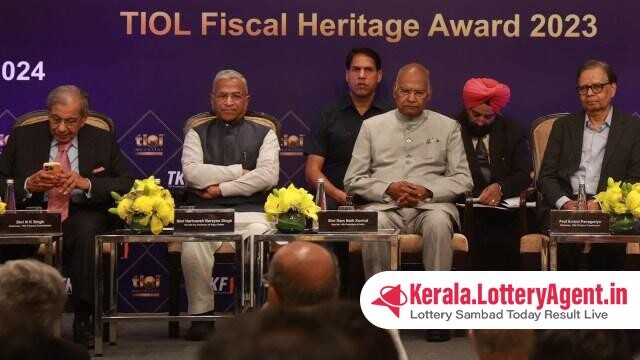
The lingering impact of the global pandemic continues to exert pressure on the world economy, with the average global debt poised to remain elevated above pre-pandemic levels for a significant portion of the globe. This cautionary outlook was provided by NK Singh, the former Chairman of the Finance Commission, during his address on Saturday.
Speaking at the Reserve Bank of India’s 90th anniversary event earlier in the week, Prime Minister Narendra Modi called attention to issues of burgeoning debt, appealing to the RBI to examine the situation more closely. Modi’s concerns are not unfounded; private sector debt in many nations has skyrocketed to twice that of their GDP. A scenario such as this doesn’t only threaten individual countries but carries potential ramifications for the entirety of the global economy.
NK Singh, elaborating on these concerns at the TIOL Kautilya Global and Fiscal Heritage Awards 2023, emphasised the vitality of discerning how different types of debts could be recalibrated to foster economic growth. Pointing to the public and private debt as areas of pressing interest, he noted that the world’s average debt quotient has reached a peak that hovers around the 100 percent mark. In light of this data, Singh posited it was imperative to ponder how debt can be managed to serve as a catalyst for growth rather than an impediment.
He also underscored the significance of distinguishing between investments intended for asset creation infrastructure and other forms of expenditure, advocating for a nuanced approach to fiscal deficit levels. According to Singh, the post-pandemic world demands a cohesive blend of stable, growth-oriented fiscal principles.
Singh proceeded to unveil a vision where wealth creation is inseparably linked to judicious fiscal strategies, which constitute the crux of a sound macroeconomic framework. He argued that such a framework is a prerequisite for India’s aspirations to evolve into a developed nation.
The occasion also served to honor esteemed contributors to the realm of economics, with Professor Jagdish Bhagwati receiving the Kautilya Global Award. Former Finance Commission Chairman Vijay Kelkar, along with Singh, were presented the Fiscal Heritage Award.
Reflecting on India’s fiscal historical journey, Singh noted the evolution from the use of terms such as ‘budget deficit’ to ‘fiscal deficit,’ tracing back to the adoption of the Sukhamoy Chakravarty Report in 1982. He recalled episodes where fiscal excesses led to the nation seeking help from various international organizations. The moderate growth during such periods only added to the fiscal pressures and illuminated how ramping up debt in other countries led to severe growth complications.
Furthermore, Singh highlighted that any discussion on fiscal deficit would be incomplete without considering revenue and its elasticity. He proposed that there exists an interdependency between tax policies, reforms, and economic growth rates.
Former President Ram Nath Kovind, also present at the gathering, voiced his thoughts on the subject. He stressed the importance of carving out sufficient fiscal space to buoy the country’s growth momentum. Kovind asserted that for any nation to prosper, there must be certainty and predictability not only in its tax structure but in all its economic policies. He concluded by pointing out that sound fiscal management plays a pivotal role in attracting both public and private investments and enhancing the efficacy of public-private partnerships.
In essence, the discussions at the event threw light on the imperatives for a balanced fiscal approach that places equal weight on growth and fiscal discipline in a world still grappling with the consequences of the pandemic.












